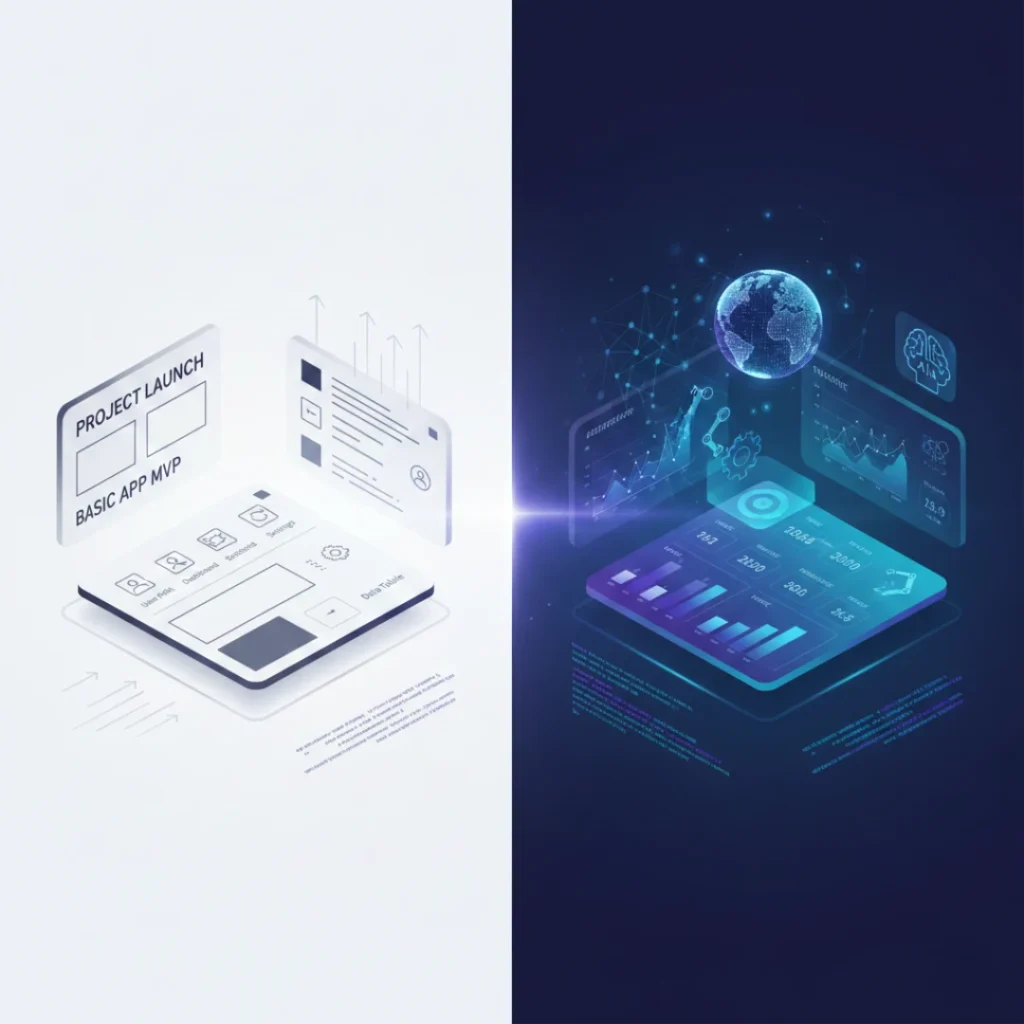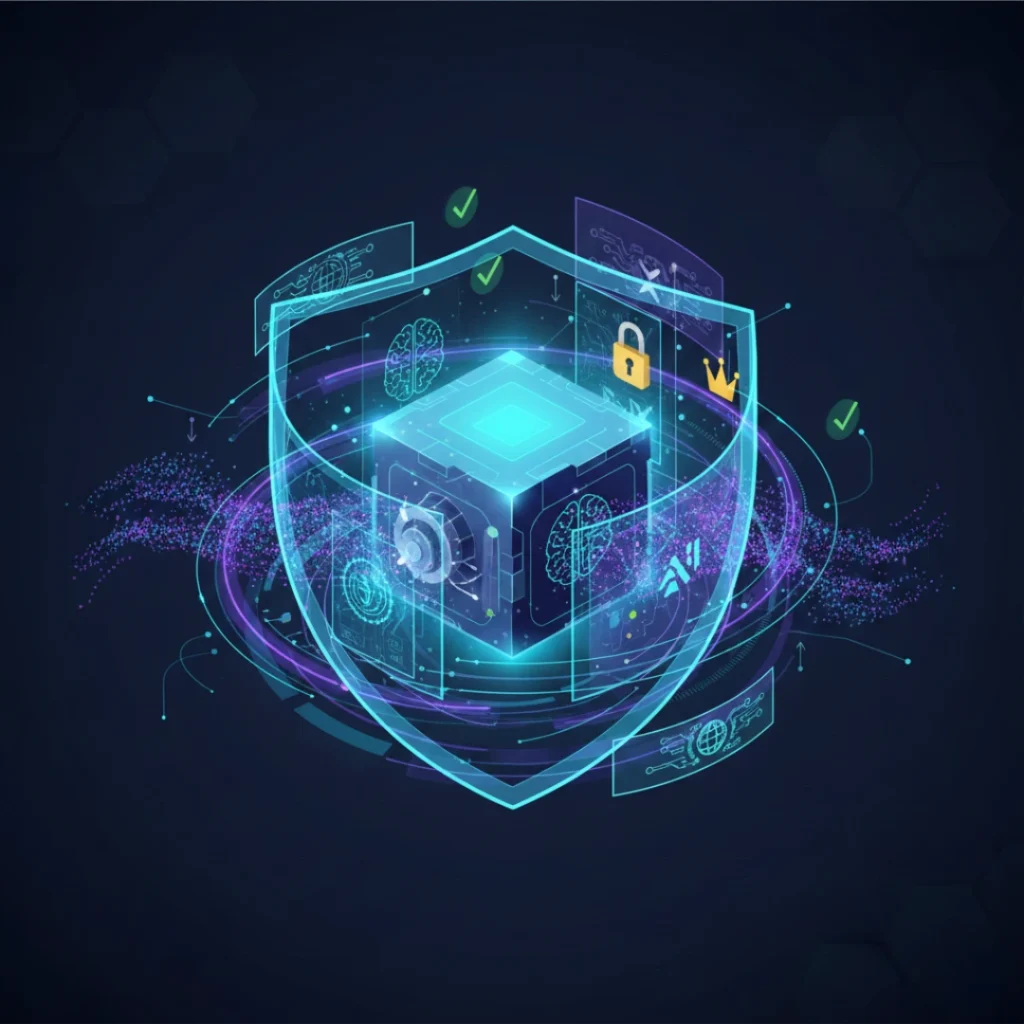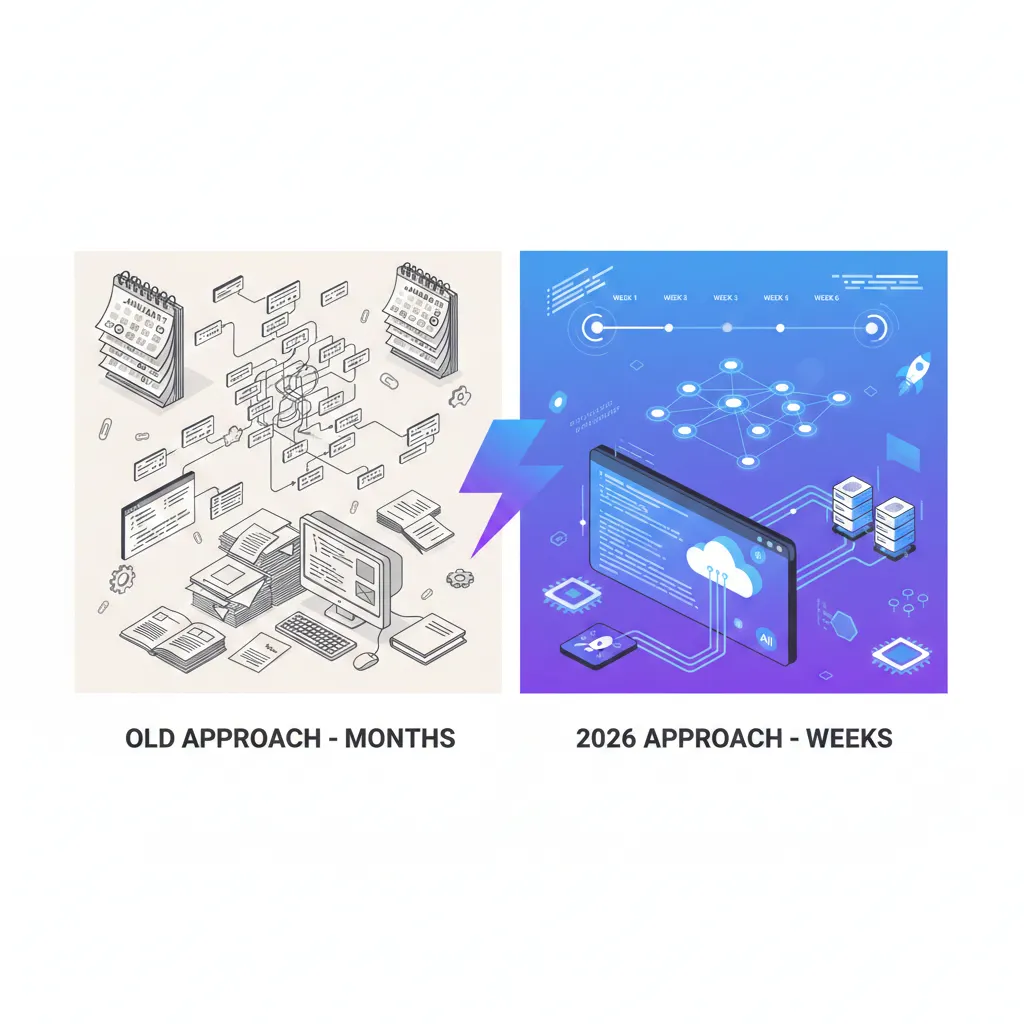IoT cloud services are revolutionizing how businesses manage connected devices, process sensor data, and automate operations across industries. As organizations worldwide embrace digital transformation, professional IoT cloud services have become essential for creating scalable, secure, and intelligent connected ecosystems that drive operational efficiency and competitive advantage.
Unlike traditional on-premises IoT solutions, cloud-based IoT services provide unlimited scalability, real-time data processing, and global accessibility while reducing infrastructure costs and complexity. These comprehensive platforms enable businesses to connect millions of devices, analyze vast amounts of sensor data, and implement automated responses that optimize performance and prevent costly downtime.
Why Businesses Choose Professional IoT Cloud Services
The exponential growth of connected devices demands robust infrastructure capable of handling massive data volumes while maintaining security and reliability. Professional IoT cloud services provide the foundation for successful digital transformation initiatives, enabling organizations to focus on business value rather than technical infrastructure.
Scalability without infrastructure investment allows businesses to start small and expand connected device networks without massive upfront costs. Cloud-based IoT platforms automatically scale resources based on demand, ensuring consistent performance as device networks grow from hundreds to millions of endpoints.
Real-time data processing capabilities enable immediate responses to changing conditions, whether optimizing manufacturing processes, monitoring patient health, or managing smart city infrastructure. Advanced IoT cloud services process streaming data in milliseconds, triggering automated actions that prevent problems before they impact operations.
Global connectivity and management through cloud platforms allows organizations to monitor and control devices anywhere in the world from centralized dashboards. This capability proves crucial for multinational companies, distributed manufacturing operations, and remote asset management scenarios.
Enterprise-grade security protects connected devices and sensitive data through multi-layered security frameworks, encrypted communications, and continuous monitoring. Professional IoT cloud services implement security best practices that individual organizations would find costly and complex to develop independently.
Comprehensive IoT Cloud Services for Modern Businesses
Device connectivity and management forms the foundation of successful IoT implementations. Professional services include device provisioning, firmware updates, configuration management, and lifecycle tracking across diverse hardware platforms and communication protocols.
Data ingestion and processing capabilities handle massive volumes of sensor data from connected devices, transforming raw information into actionable insights. Advanced IoT cloud services support real-time streaming, batch processing, and complex event processing to meet diverse business requirements.
Analytics and intelligence platforms apply machine learning algorithms to IoT data, identifying patterns, predicting failures, and optimizing operations automatically. These capabilities enable predictive maintenance, demand forecasting, and performance optimization across connected ecosystems.
Integration services connect IoT platforms with existing business systems, ERP solutions, and third-party applications. Seamless integration ensures IoT data enhances existing workflows rather than creating isolated information silos.
Industry-Specific IoT Cloud Services Solutions
Manufacturing IoT cloud services optimize production efficiency through real-time equipment monitoring, predictive maintenance, and quality control automation. Connected sensors track machine performance, environmental conditions, and product quality while automated systems adjust parameters to maintain optimal production.
Healthcare IoT solutions enable remote patient monitoring, asset tracking, and facility management through secure, compliant cloud platforms. Medical devices transmit vital signs, medication adherence data, and environmental conditions to healthcare providers for proactive care management.
Smart city IoT platforms integrate traffic management, utility monitoring, and public safety systems through comprehensive cloud services. Connected infrastructure optimizes resource usage, improves citizen services, and enables data-driven urban planning decisions.
Agriculture IoT services revolutionize farming through soil monitoring, irrigation automation, and crop health tracking. Sensors provide real-time data on moisture levels, nutrient content, and environmental conditions while automated systems optimize resource usage and maximize yields.
Retail and logistics benefit from inventory tracking, supply chain optimization, and customer experience enhancement through IoT cloud services. Connected devices monitor product movement, environmental conditions, and customer behavior while automated systems optimize operations and prevent losses.
Essential Features of Enterprise IoT Cloud Services
Multi-protocol device support ensures compatibility with diverse hardware ecosystems, communication standards, and legacy systems. Professional IoT cloud services support protocols including MQTT, CoAP, HTTP/HTTPS, and proprietary communication methods through universal connectivity gateways.
Edge computing integration enables local data processing and decision-making while maintaining cloud connectivity for centralized management. This hybrid approach reduces latency, improves reliability, and optimizes bandwidth usage for time-critical applications.
Advanced security frameworks protect IoT ecosystems through device authentication, encrypted communications, and continuous threat monitoring. Enterprise-grade services implement zero-trust security models, regular security updates, and compliance with industry regulations.
Scalable data storage accommodates growing data volumes from expanding device networks while maintaining performance and cost-effectiveness. Cloud-native storage solutions automatically optimize data placement, retention policies, and access patterns based on usage requirements.
Real-time monitoring and alerting provide immediate visibility into device status, network performance, and system health. Advanced dashboards present actionable insights while automated alerting systems notify operators of issues requiring attention.
Implementation Strategy for IoT Cloud Services
Assessment and planning begins with comprehensive analysis of business objectives, existing infrastructure, and IoT opportunities. Successful implementations start by identifying specific use cases where connected devices can deliver measurable business value and competitive advantages.
Proof of concept development validates IoT cloud service capabilities in controlled environments before full-scale deployment. This approach minimizes risk while demonstrating potential benefits to stakeholders and building organizational confidence in IoT investments.
Phased deployment introduces connected devices gradually, starting with less critical applications and expanding capabilities as systems prove their effectiveness. This methodology ensures smooth integration while allowing teams to build expertise and optimize processes.
Change management and training help organizations adapt to IoT-enabled operations and maximize technology investments. Successful implementations include comprehensive training programs, process documentation, and ongoing support to ensure adoption and effectiveness.
Advanced IoT Cloud Services Capabilities
Artificial intelligence integration enhances IoT platforms with machine learning algorithms that identify patterns, predict failures, and optimize operations automatically. AI-powered IoT cloud services can detect anomalies, forecast demand, and recommend actions without human intervention.
Digital twin technology creates virtual representations of physical assets, enabling simulation, testing, and optimization without impacting real-world operations. These capabilities prove particularly valuable for complex systems like manufacturing equipment, building infrastructure, and transportation networks.
Blockchain integration provides secure, immutable records of device data and transactions, supporting compliance requirements and enabling new business models. Distributed ledger technology enhances trust and transparency in multi-party IoT ecosystems.
5G connectivity enables ultra-low latency communications and massive device densities, supporting applications requiring immediate response times and high-bandwidth data transmission. Next-generation IoT cloud services leverage 5G capabilities for augmented reality, autonomous vehicles, and industrial automation.
Measuring ROI from IoT Cloud Services Implementation
Operational efficiency improvements result from automated monitoring, predictive maintenance, and optimized resource utilization. Organizations typically measure equipment uptime, energy consumption reduction, and process optimization to quantify IoT benefits.
Cost reduction calculations include decreased maintenance expenses, improved asset utilization, and reduced manual monitoring costs. Most organizations achieve positive ROI within 12-18 months through operational savings and efficiency gains.
Revenue enhancement opportunities emerge from new service offerings, improved customer experiences, and data-driven business models. IoT cloud services enable subscription services, usage-based pricing, and value-added services that create additional revenue streams.
Risk mitigation benefits include reduced equipment failures, improved safety monitoring, and enhanced compliance capabilities. These advantages often prove more valuable than direct cost savings, particularly in regulated industries and safety-critical applications.
Choosing the Right IoT Cloud Services Provider
Technical expertise in IoT platforms, cloud infrastructure, and device integration determines the success of connected device implementations. Look for providers with proven experience in IoT development and a track record of successful enterprise deployments across relevant industries.
Security and compliance capabilities become crucial when handling sensitive data and operating in regulated industries. Professional providers implement comprehensive security frameworks, maintain certifications, and ensure compliance with industry standards and regulations.
Scalability and performance characteristics affect long-term success as device networks grow and requirements evolve. Experienced providers design architectures that can handle massive scale while maintaining performance and cost-effectiveness.
Integration capabilities determine how effectively IoT platforms work with existing business systems and processes. Professional services include comprehensive APIs, pre-built connectors, and custom integration development to ensure seamless operation.
Future Trends in IoT Cloud Services
Edge-to-cloud orchestration represents the next evolution in IoT architecture, where intelligent edge devices work seamlessly with cloud platforms to optimize performance, reduce latency, and improve reliability. This approach enables real-time decision-making while maintaining centralized management and analytics.
Autonomous IoT ecosystems will manage themselves with minimal human intervention, automatically optimizing performance, predicting maintenance needs, and adapting to changing conditions. These self-healing systems will revolutionize operational efficiency and reliability.
Sustainability and green IoT initiatives focus on reducing energy consumption, optimizing resource usage, and supporting environmental compliance through intelligent connected systems. Future IoT cloud services will prioritize sustainability metrics alongside traditional performance indicators.
Quantum-enhanced IoT security will protect connected devices against emerging cyber threats while enabling new capabilities through quantum communication and computing technologies. These advances will strengthen IoT security and enable previously impossible applications.
Getting Started with Professional IoT Cloud Services
The journey toward connected operations begins with understanding your organization’s specific challenges, opportunities, and objectives. Professional IoT cloud services providers can assess current infrastructure, identify high-impact use cases, and design scalable solutions that align with business goals.
Initial consultation clarifies requirements, establishes success criteria, and develops implementation roadmaps. Experienced providers bring industry insights and technical expertise to ensure projects start with solid foundations and clear paths to value realization.
Pilot implementations demonstrate IoT cloud services capabilities while building internal expertise and stakeholder confidence. These focused projects allow organizations to experience benefits while validating technology choices and development approaches.
Enterprise deployment planning ensures initial investments scale effectively with business growth and evolving requirements. Professional development creates architectures that expand capabilities, integrate with future technologies, and deliver sustained competitive advantages.
Ready to transform your operations with scalable, secure IoT cloud services that connect devices, process data, and automate decisions in real-time? Contact our IoT development team to discuss how custom IoT cloud solutions can drive efficiency, reduce costs, and create new business opportunities for your organization.
Frequently Asked Questions
IoT cloud services provide hosted platforms for connecting, managing, and analyzing data from connected devices without requiring on-premises infrastructure. Unlike local solutions, cloud-based IoT services offer unlimited scalability, global accessibility, and automatic updates while reducing infrastructure costs. Cloud platforms can handle millions of devices and process massive data volumes that would require significant local hardware investments.
IoT cloud services pricing varies based on device volume, data processing requirements, and feature complexity. Basic implementations start around $5,000-15,000 for small deployments, while enterprise solutions range from $50,000-200,000+ depending on scale and customization. Most providers offer flexible pricing models including device-based, data volume, or transaction-based billing to align costs with actual usage and business growth.
Enterprise IoT cloud services implement multi-layered security including device authentication, encrypted communications, secure boot processes, and continuous threat monitoring. Professional platforms use zero-trust security models, regular firmware updates, and compliance with standards like ISO 27001, SOC 2, and industry-specific regulations. Additional protections include network segmentation, intrusion detection, and automated incident response capabilities.
IoT cloud services implementation typically takes 12-24 weeks for enterprise deployments, depending on device complexity, integration requirements, and scale. Simple proof-of-concept projects can be completed in 4-8 weeks, while comprehensive enterprise solutions with custom development may require 6-12 months. Timeline includes planning, development, testing, device deployment, and staff training phases.
Yes, professional IoT cloud services include comprehensive integration capabilities with existing ERP, CRM, and database systems. Standard platforms support popular APIs and protocols while custom development ensures seamless connectivity with proprietary systems. Integration includes real-time data synchronization, automated workflows, and unified dashboards that combine IoT data with existing business information.
Manufacturing, healthcare, agriculture, smart cities, and logistics see the highest returns from IoT cloud services. Manufacturing benefits from predictive maintenance and quality control, healthcare from remote monitoring and asset tracking, agriculture from precision farming, and logistics from supply chain optimization. Any industry with distributed assets, remote monitoring needs, or process optimization opportunities can benefit significantly.
Professional IoT cloud services implement comprehensive data governance frameworks supporting GDPR, HIPAA, and industry-specific regulations. Data processing includes encryption, access controls, audit trails, and automated compliance reporting. Many platforms offer data residency options, allowing organizations to control where sensitive information is stored and processed while maintaining global connectivity and management capabilities.




